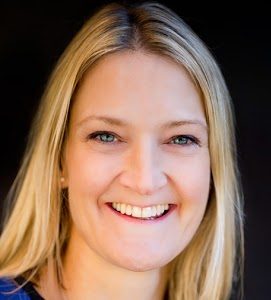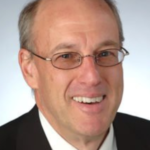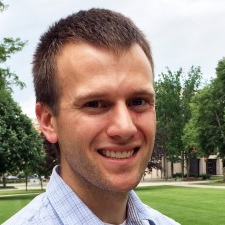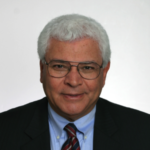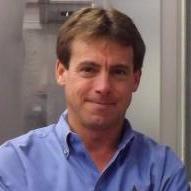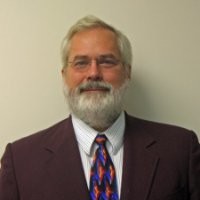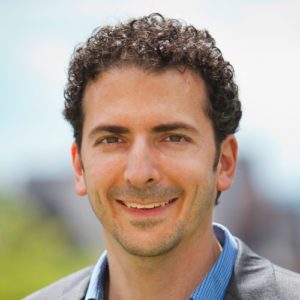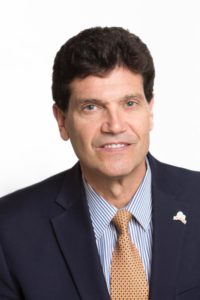SyracuseCoE’s May 2025 Research & Technology Forum featured a presentation from Hugh Henderson, Principal at Owahgena Consulting. An expert in both geothermal and cold climate air source heat pumps, Henderson showcased his monitoring and evaluation work of the ground source heat pump system in a mixed-use building completed in 2022.
Research and Technology Forums
The “Biological Embedding” of Environmental Exposure Harm in Children
In a Research & Technology Forum held on April 9, Professor Brooks B. Gump presented his research on environmental exposure harm in children, and how toxicant exposure can become biologically embedded, leading to long-term health issues.
Nanotechnology for Renewable Energy
SyracuseCoE recently hosted a Research & Technology Forum featuring Weiwei Zheng, Associate Professor in the Department of Chemistry at Syracuse University. Held on January 30th, “Nanotechnology for Renewable Energy” highlighted Professor Zheng’s research on the use of semiconductor nanocrystals for renewable energy harvesting.
Drone-Based Techniques for Building Assessment
The Research & Technology Forum hosted by SyracuseCoE on November 13th featured a presentation by faculty from the State University of New York College of Environmental Science and Forestry (SUNY ESF).
Air Sanitizing Technologies and Viral Control in Indoor Environments
At the Research and Technology Forum hosted by SyracuseCoE on October 16th, Dacheng Ren and Tom Dunbar were invited to speak on their research and findings on viral transmission dynamics and innovative air sanitization technologies.
Syracuse as a National Leader in Stormwater Management
In 2010, Onondaga County initiated development of green infrastructure to reduce combine sewer overflow pollution, known as the Save the Rain program. The County now boasts more than 220 green infrastructure projects and has satisfied the terms of the latest Amended Consent Judgment.
This changing landscape has offered many opportunities for research on stormwater management locally. In this Research & Technology Forum, held on April 18th, three faculty in the Department of Civil and Environmental Engineering (CEE) discussed research programs related to stormwater in Syracuse.
Bioinspired Material Design for Sustainable Manufacturing
SyracuseCoE recently hosted an Research & Technology Forum featuring Dr. Zhao Qin, Assistant Professor of Civil and Environmental Engineering in the College of Engineering and Computer Science at Syracuse University, who spoke about his team’s research on innovative, bio-inspired materials.
Research on Urban Geospatial Patterns and Their Nexus to Built Environment
SyracuseCoE hosted their annual celebration on February 7, 2024, featuring a Research and Technology Forum followed by a reception. This R&T forum featured the geospatial science research conduct by Dr. Peng Gao, along with an update on the development of a green design studio (GDS) at SyracuseCoE, presented by Dr. Lu Li.
Deep Energy Retrofits: The Net Zero Energy Retrofit Living Lab
For SyracuseCoE’s November 2023 Research & Technology forum, Professor Nina Wilson presented her team’s work at the Net Zero Energy Retrofit Living Lab, a three-year project at Syracuse University. This research effort is focused on the development of replicable approaches to deep energy retrofits to improve building energy efficiency, indoor air quality for human health, and thermal and visual comfort for thousands of existing multifamily buildings in New York’s cold climate.
Urban Air Quality Modeling and Monitoring for Pollutant Exposure and Health Risk Assessments
While concentration measurements of atmospheric trace gas and particulate matter are essential to quantifying air pollution, numerical modeling research is imperative to understanding the mechanisms driving the formation of air pollution and further informing policy-making. This R&T forum featured the regional and urban air quality modeling and simulation research conducted by Professor Huiting Mao and her research group at SUNY College of Environmental Science and Forestry (ESF). In addition, SyracuseCoE’s Executive Director Jianshun “Jensen” Zhang, provided an update on the development of SyracuseCoE’s multiscale testbed for building and urban air quality monitoring that will facilitate both academic research and industrial product development and demonstration.
Syracuse Air Quality Matters: Community-Based Monitoring Projects for I-81
Major changes are planned for the urban environment of Syracuse, NY. Interstate-81 will be demolished and replaced with a community grid. Local residents have raised concerns about how this will affect air quality during and after construction. This Research & Technology Forum explores Syracuse’s current air quality, assesses future air quality, and addresses the need for publicly available air quality data.
Innovations in Energy Storage at Buildings
This panel discussion features three companies working on innovation products for energy storage at buildings. The discussion centers on the market opportunities and visions of three companies seeking to grow their business in this energy sector. Panelists include Norma Byron, Ellie Rusling, and Paul Mutolo; moderated by Eric A. Schiff.
Innovation through Law: Importance of Early Stage Research
Learn more about the importance of early-stage research in the development of intellectual property and new technologies, as well as the IP, markets and regulatory assistance available from the Innovation Law Center to support companies in the EPIC Buildings regional cluster. Speakers include Brian Gerling, Dominick Danna, and David Eilers; moderated by Eric A. Schiff.
Innovation through Law: Importance of Early Stage Research
The Innovation Law Center (ILC) provides legal research, education, and information useful in assessing the commercialization prospects for new technology. This presentation was about the importance of early-stage research in the development of intellectual property and new technologies, as well as the IP, markets and regulatory assistance available from the Innovation Law Center to support companies in the EPIC Buildings regional cluster. Presentations were given by Brian Gerling, J.D., Dominick Danna, B.A. Chemistry, B.S.E., and David Eilers, M.B.A. This was an EPIC Buildings Program event.
Dynamic Sustainability: Implications of the Net-Zero Carbon Transition
The Dynamic Sustainability Lab (DSL) examines supply chain, economic, trade and national security implications resulting from technological, biological and institutional efforts for a net-zero carbon economy. This forum explored the work of Dr. Jay Golden and The Dynamic Sustainability Lab at Syracuse University. Dr. Golden is an internationally recognized researcher and academic regarding the dynamics of the global sustainability transition. This presentation was moderated by Neil Webb, Director of Growth & Markets at Ramboll.
The Electric Revolution: Energy Storage is King
Syracuse University’s NSF Industry-University Collaborative Research Center (IUCRC) for Solid-State Electric Power Storage (CEPS) is working to develop eco-friendly, safe and economically feasible solid-state energy storage technology for portable, medical, automotive, electric grid, military and energy security applications. CEPS is working with intellectual property company, C4V, based in Binghamton, NY, to create next-generation storage materials that can be integrated into current manufacturing processes. This forum includes presentations from Mechanical and Aerospace Professor Quinn Qiao, Technology Commercialization Manager Natalya Chernova, and Battery Engineer Niloofar Karami.
Healthy Buildings for People: Multi-scaled Approach for Improving Indoor Air Quality
This R&T forum introduced Carrier’s Healthy Building Program, and the important collaborative research with Syracuse University that will contribute to the design of risk mitigation and IAQ strategies – while considering effectiveness, cost and scale. These include multi-scale IAQ control strategies at building, room, personal and breathing-zone levels and consider outdoor ventilation, filtration systems, air distribution and cleaning methods, personal ventilation and masks. Presentations by Michael Birnkrant and Jianshun “Jensen” Zhang
Innovation through Law: Importance of Early Stage Research
Learn more about the importance of early-stage research in the development of intellectual property and new technologies, as well as the IP, markets and regulatory assistance available from the Innovation Law Center to support companies in the EPIC Buildings regional cluster.
Opportunities in Decarbonizing Buildings through Controls and Electrification
Dr. Karma Sawyer, Director of the Electricity Infrastructure & Buildings Division at PNNL, discussed innovative approaches to controlling and optimizing smart, electric devices in buildings in coordination with the grid and distributed energy resources. These will facilitate the decarbonization of the power grid while ensuring resilience and reliability.
GEB 101: Concepts, Applications and Challenges
This presentation gives the basics of a Grid-Interactive Efficient Building (GEB) strategy, created by the U.S. Department of Energy (DOE), aiming to optimize across distributed energy resources (DERs) to advance the role buildings can play in energy system operations and planning.
EPIC Buildings: Exploring New Funding Opportunities for Small Businesses from the U.S. Department of Energy
This webinar, explored new funding opportunities for small businesses from the U.S. Department of Energy.
Podcast: EPIC Buildings – Project Kickoff Webinar
SyracuseCoE held a kickoff webinar showcasing the new EPIC Buildings program based on a $750,000 award from the U.S. Department of Energy to accelerate development and commercialization of innovations for energy hardware innovations, in NYS.
Podcast: COVID Safety in Schools: A New Variant for a New Year
Widespread school closings, like we’ve seen through the COVID-19 pandemic, create long-term individual and societal costs. It is in the best interest of children and families for schools to remain open. To do that, every effort must be made to keep children healthy. This podcast features Harvard researcher and exposure science expert Joseph Allen and East Syracuse Minoa School Superintendent Donna DeSiato, who describe the most valuable exposure reduction strategies and how they can be effectively implemented in schools, even with limited budgets and staff.
Podcast: Reopening Restaurants: How safe is it to dine-in again?
A SyracuseCoE expert panel discussion on reopening restaurants: How safe is it to dine-in again? What should restaurant-goers take into consideration before reserving that table? What can restaurateurs do to make indoor dining safer? Podcast available.
Podcast: Unexpected New Directions for the Future of Green Building
Ian Shapiro, co-author of the newly released Green Building Illustrated, 2nd Edition, joins Dr. Nina Sharifi, an Assistant Professor of Architectural Technology at Syracuse University’s School of Architecture, to talk about updates to the new edition of the book. The new edition continues to create a typology through strategy, theory and standards, while building the visual lexicon for sustainable design and construction. Students, faculty, practitioners and green building advocates – tune in to join the conversation about new directions in green building!
Podcast: Air Purifiers & Airflows: Minimizing COVID-19 Risk in Classrooms
Students are heading back to classrooms. Undetected, there may be one who’s infected by COVID-19. Beyond masking, what are the options for teachers and administrators to minimize the spread of disease through the air? Join us as we talk with Central New York experts about how air can be replaced or purified to help protect classmates and teachers. When do portable air purifiers make a difference if a superspreader is in the room? How do I choose purifiers that will be effective and economical? Where should I place them? How can I understand how air moves in my room? What are the possibilities for rearranging the flow to minimize the risk of disease transmission?
Podcast: Experts Agree on Aerosol Transmission of COVID-19: How Can Schools Manage Indoor Air to Stop the Spread?
View our other Research & Technology Forums and Podcasts
Panelist Dr. Jensen Zhang is an associate editor of the professional ASHRAE journal, Science and Technology for the Built Environment. Read his recently published editorial, Integrating IAQ control strategies to reduce the risk of asymptomatic SARS CoV-2 infections in classrooms and open plan offices.
A new school year is beginning soon. Understanding the ventilation and air quality of indoor spaces is critically important. From improved ventilation modifications, to HVAC and air filtration, to physical modification of spaces, this podcast discusses the current knowledge of how to mitigate the spread of the coronavirus in indoor environments.
With strong recommendations from 239 scientists from 32 countries, including faculty from Syracuse University, the World Health Organization is now acknowledging the evidence that COVID-19 can be transmitted through aerosol droplets. Viral particles become airborne when people sneeze, cough, sing, talk or breath.
As students return to campuses and classrooms, how can faculty, teachers and building managers optimize ventilation and filtration strategies to help keep students and faculty healthy?
Panelists:
Cliff I. Davidson, Thomas C. and Colleen L. Wilmot Professor of Engineering, Environmental Engineering Program Director of Civil & Environmental Engineering, Syracuse University
Cliff Davidson is the Thomas and Colleen Wilmot Professor of Engineering in the Department of Civil and Environmental Engineering at Syracuse University in Syracuse, NY. He also serves as Director of Environmental Engineering Programs, and Director of the Center for Sustainable Engineering. He received his B.S. in Electrical Engineering from Carnegie Mellon University, and his M.S. and Ph.D. degrees in Environmental Engineering Science from California Institute of Technology. Following his PhD, he joined the Carnegie Mellon faculty where he stayed for 33 years in the Department of Civil Engineering (currently Civil and Environmental Engineering) and the Department of Engineering and Public Policy. He moved to Syracuse University in 2010.
Davidson’s research background is in the area of air quality, especially aerosol interaction with surfaces, including surfaces of fibers in a face mask or filter. He has also worked on environmental sustainability in other areas, such as the design of sustainable cities, the effectiveness of green roofs in reducing urban stormwater runoff, educational innovations for teaching sustainable engineering, and identifying the preferences of individuals and organizations for strategies to adapt to climate change. He has published over 130 papers in refereed journals and another 100 papers in peer-reviewed conference proceedings and book chapters. He has served on the editorial boards of four scientific journals, and is a Fellow in three national organizations, including the American Association for Aerosol Research, where he also served as President. He has recently been chosen as the 2021-2022 Distinguished Lecturer by the Association of Environmental Engineering and Science Professors.
Jianshun “Jensen” Zhang, Ph.D., Professor, Department of Mechanical and Aerospace Engineering at Syracuse University and Visiting Professor, School of Architecture and Urban Planning at Nanjing University, China
Jianshun “Jensen” Zhang is Professor and Director of Building Energy and Environmental Systems Laboratory, Department of Mechanical and Aerospace Engineering at Syracuse University (SU), New York, USA, and a Visiting Professor and Chief Researcher of the School of Architecture and Urban Planning at Nanjing University, China. He received his Ph.D. from University of Illinois at Urbana-Champaign and worked at National Research Council of Canada for 8 years before he joined SU.
Dr. Zhang is a co-leader of the SU-wide research cluster in Energy and Environment that promotes and coordinates multi-disciplinary research on the campus. He is an expert in room air and contaminant distribution, material emissions, air purification, building enclosure performance, and combined heat, air, moisture and pollutant simulations (CHAMPS) for integrative design and intelligent controls of buildings. He has authored/co-authored over 200 technical papers and 3 American national standards. He is Associate Editor of Journal of Science and Technology for the Built Environment (STBE, formerly ASHRAE HVAC&R Research Journal) and The International Journal of Ventilation, and serves as a Member of the Editorial Boards of Building Simulations—an international Journal, International Journal of High-Rise Buildings, and the International Journal of Architectural Frontier Research. He is Fellow of ISIAQ and ASHRAE, and current Chairman of the International Association of Building Physics.
Mike Wetzel, PE, President & CEO, Air Innovations
Michael Wetzel is President and CEO of Air Innovations, a SyracuseCoE Partner firm that specializes in the design and manufacture of environmental control systems. Wetzel is a graduate of Clarkson University where he received a bachelor of science in mechanical engineering. He is a licensed Professional Engineer and is the holder of seven US patents.
Prior to Air Innovations, Wetzel was based in Strasbourg, France for four years working for a multinational company building cleanrooms in Europe and the Mideast. Previously he worked stateside as an engineering manager in the HVAC construction industry.
New York’s Entrepreneurial Ecosystem, Featuring FuzeHub and Ducted Wind Turbines
A SyracuseCoE Research & Technology Forum
It is an exciting time to be an entrepreneur in Central New York! This forum offers guidance on how businesses can use resources like FuzeHub and SyracuseCoE.
New York State offers a host of resources designed to enable new and existing businesses to become more competitive through manufacturing improvements and help with the development of innovative technologies and processes. Centers and programs that are supported by Empire State Development’s Division of Science, Technology and Innovation (NYSTAR) emphasize the importance of working with industry as a way to leverage New York State’s technology strengths to produce new products. The state also offers other innovation development support resources, including financial incentives to foster university collaboration, research and innovation.
Learn more about one of those ecosystem resources, FuzeHub, who provides programs and resources for manufacturers in New York State. Julianne Clothier, FuzeHub’s Industry Engagement Manager, shared information about FuzeHub’s suite of programming designed to ignite growth and prosperity in New York’s manufacturing sector, one manufacturer at a time!
We were also joined by Joe Dickson, CEO Ducted Wind Turbines, Inc., a SyracuseCoE Start-up Partner company based in Potsdam, NY. He shared how NYS supports and programs like the SyracuseCoE Innovation Fund give companies like Ducted Wind Turbines new opportunities for growth and success. Joe also shared sage wisdom from his broad 30-year experience working with six diverse startups within NYS’s entrepreneurial ecosystem.
Presenters:
Julianne Clouthier Industry Engagement Manager, FuzeHub
Julianne oversees the Jeff Lawrence Innovation Fund which is comprised of manufacturing grants, a commercialization competition and an innovation challenge. The Fund provides $1M annually to not-for profits, manufacturers and early-stage technology companies in New York. Julianne has over ten years of economic development experience and has worked on numerous microenterprise, business expansion, and infrastructure projects. She is a member of the Tech Valley High School Business Alliance and serves as a mentor, judge and panelist for numerous innovation and entrepreneurial programs. Julianne received her MBA from the University at Albany, a Bachelor of Arts in Communications from Mercyhurst College and is a recent graduate of AlbanyCanCode -Front End Web Development.
Joe Dickson CEO, Ducted Wind Turbines, Inc.
Joe Dickson, currently the CEO of Ducted Wind Turbines, Inc. and also recently served as a co-founder and the CEO of Pelitex, is a veteran entrepreneur who has served as the founder and/or senior C-Level executive of seven high-tech start-up firms across multiple industry and technology sectors during his 30-year career. His first start-up, a spin out from GE, achieved a 100X ROI in 3 years. Since then he has been a part of 6 other start-ups across industry areas as diverse as advanced materials, IT, renewable energy, microelectronics, medical devices, and biotech.
Mr. Dickson has helped raise over $50MM in venture and private equity capital, and also has extensive experience in mergers and acquisitions. He is an expert in business and financial modeling, market validation, strategic positioning, and business plan execution. Mr. Dickson has taught entrepreneurship at both Cazenovia College and Syracuse University, and was named Entrepreneur of the Year by the Syracuse Citizen’s Foundation in 1992. Mr. Dickson has a BS in Chemistry from Syracuse University and an MBA from the University of Rochester.
Occupant Behavior Driven Smart Building Controls
In the US, people spend 87% of their time in buildings. Understanding dynamic occupant presence and thermal comfort needs is crucial to ensuring that building design and operations provide healthy and productive living and working environments. Occupant behavior is becoming a leading factor for building energy use, but there are challenges to studying occupant behaviors, as they are complex and ever changing. Privacy issues and the high cost of sensors can make data collection difficult. The constant changes in the built environment caused by occupant behavior also result in both physiological and psychological effects on the occupants.
Professor Bing Dong’s presentation covered various research projects related to behavior driven controls and optimization of smart and connected buildings, from behavior-driven individual building energy optimization to urban scale energy management, from equipment level optimal controls to large scale buildings-to-grid integration. Professor Dong concluded with a research vision on behavior-driven urban energy infrastructure planning and management within a smart and connected community.
Steven VonDeak presented the people count sensor platform, Density, Inc. To put it simply — Density counts people. Understanding how many people are in a space helps organizations improve building performance by making them safer, more efficient and more productive. Density’s people counting system places a premium on three key functionalities: anonymity, accuracy, and real-time data availability. This real-time room occupancy provides insight for a variety of use cases including intelligent demand-controlled HVAC operation. Organized in 2014, Density has grown to a 50-person startup and their proprietary hardware/software system is all assembled, tested and packaged right in Syracuse, NY.
Moderator:
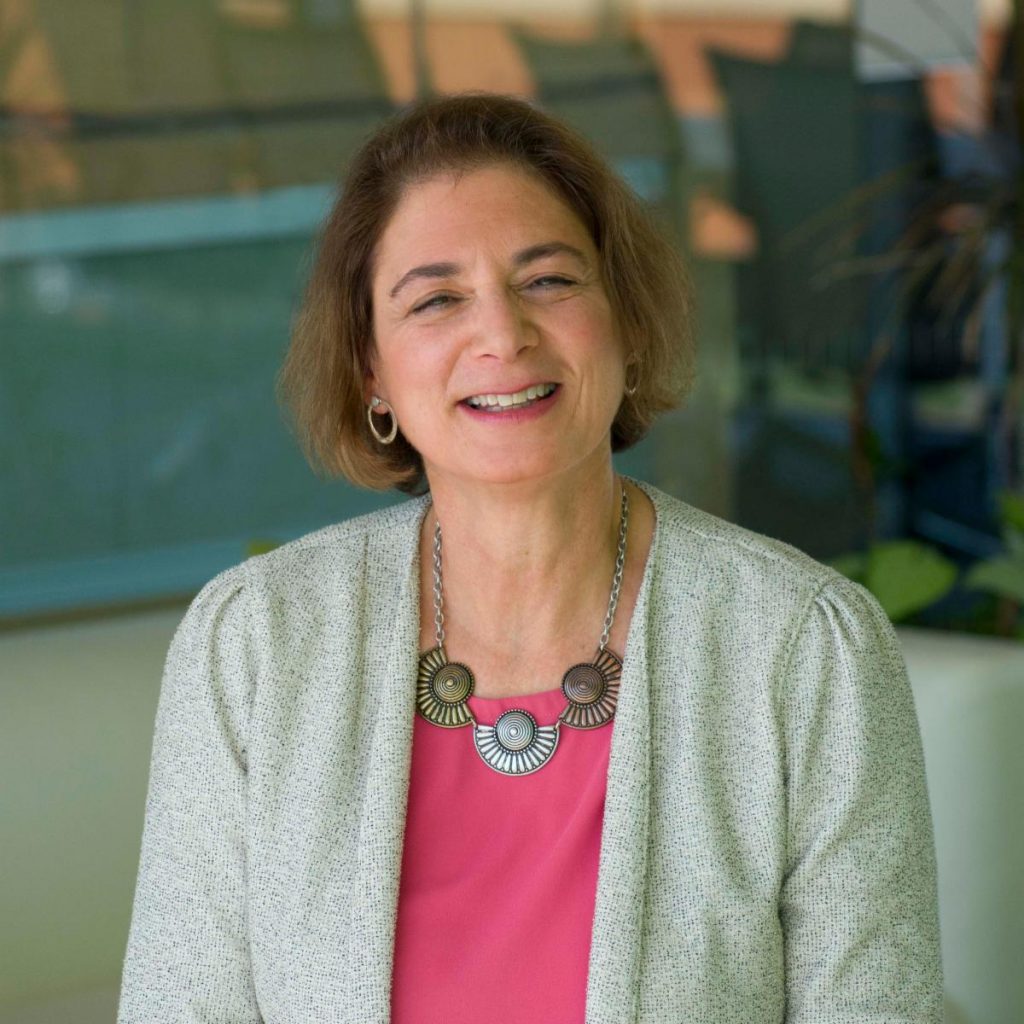
Laura J. Steinberg
Interim Executive Director, SyracuseCoEExecutive Director, Syracuse University Infrastructure InstituteProfessor, Civil & Environmental Engineering, Syracuse University
Dr. Steinberg’s research focuses on environmental phenomena’s effect on infrastructure, including how climate change is impacting infrastructure and environmental disasters. Her areas of expertise include environmental modeling and policy, diffusion of innovation, and critical infrastructure protection.
Presenters:
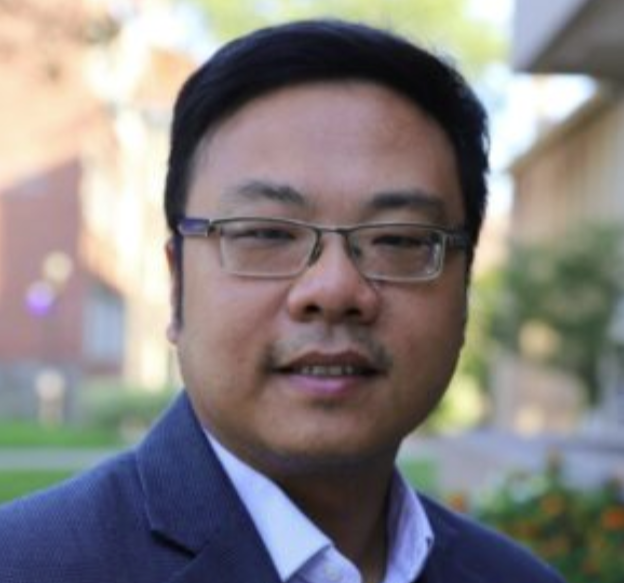
Bing Dong
Associate Professor, Mechanical & Aerospace Engineering, College of Engineering and Computer Science, Syracuse UniversitySyracuseCoE Faculty Fellow
Dr. Dong has more than 15 years experiences in building energy performance simulation, building controls and HVAC FDD. He is also actively involved in the projects related with occupancy behavior modeling in buildings, machine learning for sustainability, wireless sensor network in buildings and building information modeling. He has published more than 50 peer reviewed papers. His papers are cited more than 400 times by other researchers around the world. He specializes in Occupancy Behavior Modeling, Energy Performance M&V, Model-based Building HVAC Controls; Energy Performance Simulation, HVAC FDD and BIM.
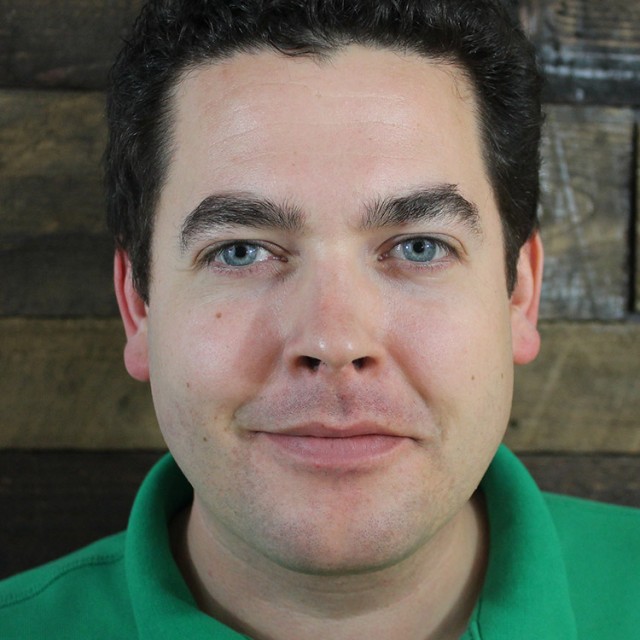
Steven VonDeak
Co-founder and Chief of Staff, Density, Inc.
Steven VonDeak is a co-founder and Chief of Staff at Density Inc, a 50-person venture-backed enterprise IoT company. Incorporated in 2014, Density helps organizations improve the performance of their space by making it safer, more efficient, and more productive. From 2014 to 2019, VonDeak has been responsible for supporting the varied operational needs of Density, including: finance, legal, and human resources. He is also the general manager of Density’s Syracuse office, where the company was founded and continues to run significant operations today. From 2008 to 2014, VonDeak founded and operated a digital consultancy specializing in web and mobile application development. He holds a JD from Syracuse University College of Law ’08 and a BA from the University of Rochester ’05.
Lessons Learned from Monitoring and Re-Commissioning New York State’s Portfolio of CHP Systems
Presenter:
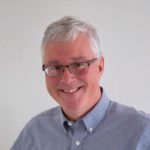 Mr. Henderson is a Principal Consultant at Frontier Energy with more than 30 years of experience evaluating energy technologies through on-site evaluation, field monitoring, and energy simulations. His areas of expertise include innovative HVAC systems, CHP, industrial processes, and heat recovery. Mr. Henderson holds both Bachelors and Masters Degrees in Agricultural (Mechanical) Engineering from Cornell University. He is a professional engineer in Florida and New York State. He is an active member in several ASHRAE society-level committees.
Mr. Henderson is a Principal Consultant at Frontier Energy with more than 30 years of experience evaluating energy technologies through on-site evaluation, field monitoring, and energy simulations. His areas of expertise include innovative HVAC systems, CHP, industrial processes, and heat recovery. Mr. Henderson holds both Bachelors and Masters Degrees in Agricultural (Mechanical) Engineering from Cornell University. He is a professional engineer in Florida and New York State. He is an active member in several ASHRAE society-level committees.Old School Meets New School: King + King Architects Transform an 1849 Schoolhouse into a High-Performance, Low-Carbon Residence
Research & Technology Forum Series
Status and Trends of Harmful Algal Blooms in Skaneateles Lake
The Skaneateles Lake Harmful Algal Bloom (HAB) Action Plan was published in 2017 in order to lay out a comprehensive approach to minimize the frequency and intensity of HABs in Skaneateles Lake. One recommendation of the HAB Action Plan was to perform a modelling effort to better understand the sources of nutrients potentially contributing to HABs, the lake dynamics, and to inform the development of a Nine Elements Watershed Plan.
As a run-up to that modelling effort, a data gap and trend analysis have been conducted to understand what data are available now to support modelling, what those data say about the status and trends of the lake, and what data are needed to conduct the recommended modelling. The findings of this analysis suggest that the lake is responding in complex and unexpected ways to a variety of stressors including invasive species and climate change.
During the forum, we discussed the findings of the analysis in detail and actions for next steps.
Presenter:
Anthony Eallonardo Jr., PhD, PWS
Dave Matthews, PhD
Elizabeth Moran, PhD
Research & Technology Forum Series
SyracuseCoE Partners Present: Bringing Hyperspectral Imaging Into the Mainstream, by Corning
Presenter:
Richard Zacaroli
Research & Technology Forum Series
From Battlefield to Barn: Innovative Environmental Sensors Adapted to Detect Disease in Dairy Cows
Presenters:
Chuck Stormon
Dr. Fathima Rinzan
Director of Microbiology, Acumen Detection
Fathima (Faraz) has been with Acumen’s R&D team since the beginning; she contributed tremendously to the development of revolutionary assays and a milk prep kit to screen for bovine mastitis. Faraz brings a wealth of knowledge to the team and has a unique set of skills acquired through working in diverse settings, such as biocide, biotech, and food manufacturing industries, clinical labs and academia. Faraz holds a Ph.D. and an M.S. in Applied and Environmental Microbiology, an M.S. in Microbiology, and a Bachelor’s degree in Microbiology. She is currently pursuing an MBA.
Angelina Lumia
Director of Production, Acumen Detection
Angelina leads manufacturing while making sure all the laboratories are safe and in compliance. Angelina is a co-author of a published article in the American Chemical Society Biomaterials Science and Engineering Journal. The article is based on her senior research project from SUNY ESF. Angelina holds a bachelor’s degree in biochemistry from SUNY ESF and is currently enrolled in the Master of Business Administration program at SUNY Oswego.
Benjamin Dorion
Director of Technology, Acumen Detection
Research & Technology Forum Series
SyracuseCoE offers regularly scheduled forums and networking showcasing innovative research, technologies and other opportunities of interest to stakeholders and community members. Past topics have included groundbreaking industry projects to modernize the HVAC systems at the Sistine Chapel, workshops to help state agencies develop funding priorities, and research on the impact of “green” buildings on cognitive function. To receive notice of these events, sign up for email updates at the “Join our mailing list” tab at the bottom right corner of the website. Visit the Research & Technology Forum page to see the archive.
Up, Up, and Away: Using Drones for Earth Sciences and Geospatial Research and Teaching
Presenters:
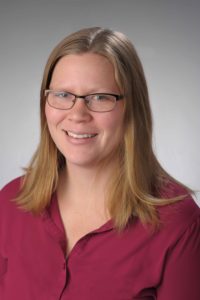
 Professor Christa Kelleher
Professor Christa Kelleher
Professor Jane Read
Research & Technology Forum Series
Engineered by Corning, Designed by Syracuse Architecture: The Architectural Applications of Corning® Willow Glass®
Presenters:
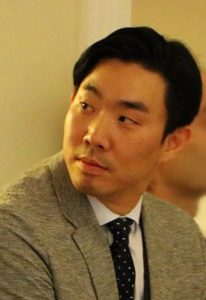 Dr. Daekwon Park
Dr. Daekwon Park
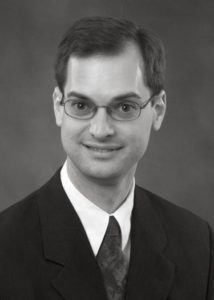 Dr. Sean Garner
Dr. Sean Garner
Moderated By:
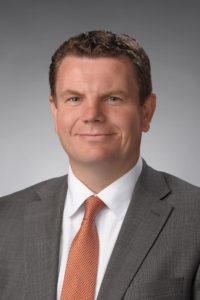 Gary Girzadas
Gary Girzadas
Research & Technology Forum Series
From the Front Lines: Deep Energy Retrofit Solutions
New York State Energy and Research Development Authority (NYSERDA) has partnered with the Dutch initiative EnergieSprong to challenge market development of feasible deep energy retrofits. Beginning with six pilot projects focused on affordable multifamily housing, teams throughout the State search to flush out demand forecasts, industry investment, and regulatory constraints to drive market transforming solutions to net zero, or near net zero retrofits targeting the State’s existing building stock.
Where do the origins of this concept lie? This leads us on an adventure through the Netherlands, where market development has been in process for nearly ten years. A team of architects, engineers, financiers and owners took the opportunity to experience, first-hand, the advancements in technology and financing principles involved with developing market ready deep energy retrofits.
We bring this information back to North America for implementation, sharing details of cost compression including industrialization of architectural components, pre-fabricated mechanical systems, and finance models showing the ability for such retrofits to become viable in a market driven economy. Most importantly we make connections to New York State and North America, assessing compatibility and the opportunity to adapt and expand upon metrics seen for nearly a decade overseas.
Presenters:
Tom King
CPHD, LEED AP
Designer King + King Architects
Tom is a Certified Passive House Designer and Tradesperson, trained in the construction, detailing and energy modeling of high-performance buildings. At King+King he lives in the details. Designing high performing envelope systems for all buildings, large and small. Whether it be Net Zero, Passive House, new construction or renovation, complying with limited budgets and Energy Codes, or striving toward the highest performance metrics; every building stands to benefit from air tight construction, continuous insulation and high quality detailing coupled with integrated mechanical system strategies. Tom pushes this boundary and challenges colleagues and consultants alike to think, design, and construct more holistically.
Tom is a graduate of Stevens Institute of Technology, where he held a leading role in the research, design and construction of the SURE House’s resilient and sustainable components. The SURE House is a net zero energy prototype for resilient residential construction targeting coastal neighborhoods increasingly affected by a changing climate. The Stevens SURE House team, led by six graduate students including Tom, won an unprecedented seven of ten competitions at the 2015 US Department of Energy Solar Decathlon competition. Tom holds a Master’s in Engineering from Stevens and a Bachelor of Science in Architecture from Roger Williams University.
Sadie McKeown
Executive VP and COO
Community Preservation Corporation
McKeown oversees the company’s lending activities, business operations and investor relations, as well the operation of its regional field offices located throughout New York. McKeown is also responsible for spearheading the company’s innovative “underwriting efficiency” practice that incorporates energy and water efficiency features into the financing of first mortgages for multifamily building owners. CPC has used this new underwriting method to leverage nearly $6.4 million in additional mortgage financing to fund more than 3,600 units of energy-efficient multifamily housing across NYS.
After starting her career at CPC as a Mortgage Originator in 1992, McKeown later served as Senior VP and Director of Lending in CPC’s Hudson Valley Region, where she led the company’s Downtown Main Street initiatives. McKeown earned her Master’s Degree in Human Services Administration with a concentration in Housing from Cornell University. She received her Bachelor’s Degree in Communications from Fordham University.
[vc_row][vc_column][vc_video link=”https://youtu.be/Ez-Es0EfLnc” el_width=”60″ align=”center”][/vc_column][/vc_row]
Research & Technology Forum Series
Small Packaged Heat Pumps: Rethinking Everything
Heat pumps are a key strategy for eliminating fossil fuel use, being promoted by everyone from savvy HVAC contractors to national environmental groups to city and state agencies, but split system heat pumps are costly. Wouldn’t a small packaged solution be a hit in the market? Multifamily per-room heat loss is becoming so small, whether through deep energy retrofits or high-performance new construction, that a small packaged heat pump might really be JUST what’s needed for widespread adoption.
Imagine: no refrigerant piping, no refrigerant pipe insulation or chases, no licensed refrigeration tech, no outdoor pad, no outdoor electrical disconnect, not even an outdoor unit of any sort! How about costs in the $1000-2000 range instead of $5000-10,000 or more. Taitem’s recent study of existing and emerging technology reveals that we’re not quite there yet.
Where are we? What’s out there? Do current packaged terminal heat pumps come close? And if not, could they with some design modifications? What else is available or being developed? Watch our January R&T below for a lively discussion of getting downright small with heat pumps.
Presenters:
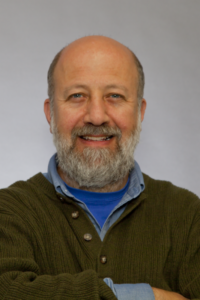 Ian Shapiro, PE, LEED AP
Ian Shapiro, PE, LEED AP
Senior Engineer
Taitem Engineering
Ian founded Taitem in 1989. He is the co-author of the books Green Building Illustrated (2014) and Energy Audits and Improvements for Commercial Buildings (2016), both published by Wiley. He has been a visiting lecturer at Cornell University, Tompkins Cortland Community College, and Syracuse University. He holds an undergraduate degree from McGill University, and an M.S. from Columbia University, both in mechanical engineering. Ian is a licensed engineer in the states of New York, Connecticut, Pennsylvania. In his spare time, Ian enjoys to spend time with family and friends, write poetry, and play soccer and basketball.
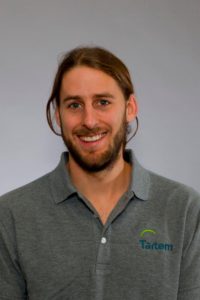 Evan Hallas
Evan Hallas
Senior Energy Analyst
Taitem Engineering
With ten years of experience in building science and energy efficiency, Evan has a deep understanding of building systems, strong communication skills, and a commitment to quality. Evan recognizes the importance of getting the details right, and to support this, he splits his time between the office and being out in the field.
[vc_row][vc_column][vc_video link=”https://www.youtube.com/watch?v=Fx_zF5MXgmk&t=4s” el_width=”60″ align=”center”][/vc_column][/vc_row]
Research & Technology Forum Series
UTC Center for Intelligent Buildings: A Living Showcase of What’s Possible
The UTC Center for Intelligent Buildings is a first-of-its-kind technology, innovation and collaboration center showcasing United Technologies products and integrated systems.
Located in Palm Beach Gardens, Florida, the center features solutions and interactive displays from UTC’s Comfort, Control and Security brands (CCS), creating a living showcase of what’s possible when technologies are implemented intelligently and integrated to increase efficiency, protect people and property, and enhance the occupant experience.
This presentation focuses mainly on the building’s HVAC innovations, and, time-permitting, we will visit the building operations remotely, via its building automation system.
Presenter:
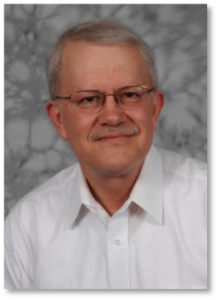 William (Bill) Chadwick
William (Bill) Chadwick
Principal Systems Engineer
UTC Building Solutions Group, AdvanTEC
United Technologies Corporation
Bill is part of the global UTC Building Solutions Group, which serves as a central point of contact for key accounts and delivers highly engineered solutions to solve customer problems in various vertical markets. Bill Chadwick serves as principal systems engineer within the AdvanTEC technology & engineering group.
Bill has more than 45 years of building systems engineering experience. He has:
- Expertise in HVAC systems analysis, design, and integration; indoor air quality design and remediation; and building systems control and integration.
- Held positions within consulting engineering and architectural firms where he designed, engineered, and directed the design of HVAC, plumbing and fire protection systems for commercial, institutional and industrial buildings, new and remodeled.
- Provided HVAC system design consultation for The New Falcon Stadium, Atlanta, GA, and the Residence Antilia, Mumbai, India
- Developed various award-winning, custom solutions, including an innovative HVAC solution for the Sistine Chapel, which reduced energy use more than 30% while doubling the load.
- Determined the MEP system selections and served as the design consultant for UTC’s new Center for Intelligent Buildings, designed to use 40% less energy despite increasing outdoor air ventilation by over 50% to improve IAQ and occupant productivity.
Bill has served on industry advisor boards for both the Syracuse Center of Excellence in Environmental and Energy Systems, and the Center for High Performance Buildings at Purdue University. He received a B.S. in Mechanical Engineering, University of Michigan, and a Certificate in Indoor Environmental Quality, Syracuse University. Bill is a Licensed Professional Engineer in MI, OH, NY and PA. He is a Certified Energy Manager from the Association of Energy Engineers (AEE), and is a LEED® Accredited Professional BD+C from the U.S. Green Build Council (USGBC). He remains active in ASHRAE as a Life Member.
[vc_row][vc_column][vc_video link=”https://www.youtube.com/watch?v=DtMYGeBHre4″ el_width=”60″ align=”center”][/vc_column][/vc_row]
Research & Technology Forum Series
U.S. Policy Options to Decrease Emissions of Carbon Dioxide to Mitigate Changing Climate
Presenter:
[vc_row][vc_column][vc_video link=”https://www.youtube.com/watch?v=hl_JnQ8WHUA” el_width=”60″ align=”center”][/vc_column][/vc_row]
Research & Technology Forum Series
Creating Resilient Heating Systems for Extreme Weather Events
Extreme weather events including hurricanes, snow storms and ice storms are a growing challenge as one of the many effects of global climate change. Combating this obstacle through resilient technology is one of the engineering challenges of the 21st Century.
Ryan’s research has investigated innovative ways of combining conventional combustion systems with solid oxide fuel cells (SOFCs). The burners act as a hydrocarbon reformer while generating thermal energy for SOFC operation. This presentations examines fundamentals of SOFCs and fuel-rich combustion and extends the preliminary results to bench-scale systems. Applications of this technology include furnaces, hot water heaters and boilers, among others.
Presenter:
Research & Technology Forum Series
Personalized Environmental Control Systems
In 2015, a team of researchers and engineers led by Prof. H. Ezzat Khalifa at Syracuse University was one of 11 teams selected by the U.S. Department of Energy (USDoE) to develop technologies that regulate the thermal environment around building occupants, rather than the entire building. The DoE has determined that doing so would save the US approximately 15% of the large amount of energy used for building HVAC. Prof. Khalifa and his team have developed an advanced micro-environmental control system, named μX, that is compact, efficient, quiet, and ergonomic. Developed as part of the DoE’s ARPA-E program, μX can enable local climate control to keep a desk occupant comfortable and facilitate expansion of thermostat setpoints, significantly reducing energy consumption for building HVAC.
This R&T Forum featured presentations on multiple aspects of this innovative micro-environmental control system, as well as a discussion of the history and opportunity offered by personal environmental control systems.
Presenters:
Dr. H. Ezzat Khalifa
Dr. H. Ezzat Khalifa is NYSTAR Distinguished Professor of Mechanical and Aerospace Engineering at Syracuse University, where he conducts research on distributed environmental control, and high-efficiency power and cooling systems for data centers. He is the originator and PI of the micro environmental control system (μX) concept. He has over 50 years of R&D experience in energy conversion and environmental control systems. Before joining SU, he served as the Director of the Carrier R&D Program at United Technologies Research Center, where he was responsible for planning and executing a diversified portfolio of R&D in innovative environmental control and energy conversion technologies. Prior to this, Dr. Khalifa was the Director of Engineering for the Carrier Carlyle Compressor Division, where he oversaw all aspects of the development and reliability of vapor compressors for air-conditioning and refrigeration. Dr. Khalifa holds a Ph.D. in Thermodynamics & Fluid Dynamics from Brown University. He is Fellow of ASME and ASHRAE.
Michael Wetzel
Michael Wetzel, P.E., is President and CEO of Air Innovations, which designs and manufactures specialty HVAC systems for a broad range of applications, from military to wine cellars to high tech. Since joining the company as president and CEO in 1996, Wetzel has grown Air Innovations from a company focused solely on floral coolers to one that addresses wide variety of refrigeration, air conditioning and filtration needs. Prior to Air Innovations, Wetzel was based in France and worked four years for a multinational company building cleanrooms in Europe and the Middle East. Stateside before that, he was employed in the HVAC construction industry. Wetzel received a Bachelor of Science in mechanical engineering from Clarkson University and is the holder of seven U.S. patents. Wetzel, who speaks fluent English and French, is a licensed Professional Engineer.
James W. Bush
James W. Bush has been working in the field of electromechanical machine design and manufacturing for 40 years with a focus on compression machinery for air, natural gas, and refrigerants. He is presently the Principal of Bush Technical, LLC providing technical services in a number of fields including the development of a miniature scroll compressor used in the successful micro-environmental control system project. Mr. Bush has led or participated in the launch of 11 different products to market and recently played a lead role in the clean-paper, ground-up design, development, and production launch of a line of scroll compressors for the commercial air conditioning and heat pump industry. He is the named inventor or co-inventor on 117 U.S. patents in this field and is author or co-author of 16 technical publications. He received his Master’s degree in Mechanical Engineering from Tennessee Technological University in 1982 with an emphasis on Engineering Acoustics and Machine Design. He also serves as an Adjunct Professor at Syracuse University in the Mechanical and Aerospace Engineering department where he assists in teaching the MEE 471/472 Senior Design Project sequence.
Presenters:
Dr. H. Ezzat Khalifa, NYSTAR Distinguished Professor of Mechanical and Aerospace Engineering, Syracuse University College of Engineering & Computer Science
Michael Wetzel, P.E., President and CEO, Air Innovations
James W. Bush, Principal, Bush Technical, LLC
Research & Technology Forum Series
Envisioning ‘Honorable’ Transportation for Clean Communities of the Future
This month’s Research and Technology Forum featured presentations from Dr. Paul Mutolo and Barry Carr who share insights on past, present and future transportation technologies and supporting energy infrastructure. Dr. Paul Mutolo kicks off the event with an “encore performance” of his TEDx talk, addressing the impacts of current transportation systems, exploring whether they are “…borrowing from our past and our future simultaneously,” and providing a vision for future “honorable” transportation. Afterwards, Barry Carr reviews current programs designed to promote alternative transportation options – including electric, natural gas and hydrogen-powered vehicles – as well as future transportation technologies. The program concludes with an introduction to a regional start-up company that is working to establish a network of grid-tied, onsite produced hydrogen stations to power advancements for fuel cell vehicles of tomorrow.
Presenters:
Dr. Paul Mutolo, CEO, Standard Hydrogen Corporation, and Director of External Partnerships, Energy Materials Center at Cornell University
Paul Mutolo, PhD, is Co-Founder and CEO of Standard Hydrogen Corporation (SHC). SHC’s mission is enabling widespread deployment of carbon free power and vehicles. We do this through sales of Hydrogen Energy Services™ for customers in the grid and transportation sectors, powered by our HyGEL™ onsite hydrogen energy storage system.
Paul is a founding board member and officer of the New York Battery & Energy Storage Technology (NY-BEST) consortium. He also manages industry-university relationships for two research centers at Cornell University: emc2, the Energy Materials Center; and PARADIM, the Platform for the Accelerated Realization, Analysis, & Discovery of Interface Materials.
Dr. Mutolo earned his PhD in inorganic and solid state chemistry from the University of California Santa Barbara. A recipient of a Fulbright Fellowship, Paul conducted two years of his doctoral research at the WWU in Münster, Germany. He received his A.B. in chemistry from Cornell. Paul lives in Ithaca with his wife and their two boys.
[vc_row][vc_column][vc_video link=”https://www.youtube.com/watch?v=5a1u8YafAc4 ” el_width=”60″ align=”center”][/vc_column][/vc_row]
Research & Technology Forum Series
Shaping a Greener Future for New York
Waterways are more and more attractive to industry for transporting raw materials, especially energy crops and their residues from agriculture, forestry and food production operations. In addition, a growing demand for green products and materials provide economic, ecological and social sustainability. This presentation explored the possibility of utilizing New York’s Canal System as a statewide regional revitalization and transportation system, to bridge the gap between bioenergy and petro-based chemicals. The presentation drew from experience of the Green Chemistry Belt at the Rhein-Main-Danube-Canal System and the Straubing Harbor in the State of Bavaria, Germany located on the river Danube.
Presenter:
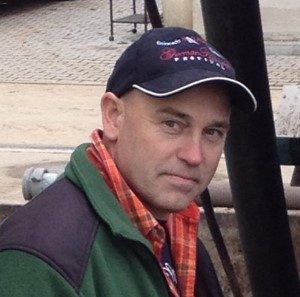 Dr. Klaus Doelle, Associate Professor, Department of Paper and Bioprocess Engineering, Environmental Science, Director TRINITY Institute, SUNY-ESF
Dr. Klaus Doelle, Associate Professor, Department of Paper and Bioprocess Engineering, Environmental Science, Director TRINITY Institute, SUNY-ESF
Dr. Klaus Doelle has over 26 years combined professional experience in the commercial sector including chemical process development, paper manufacturing, materials, design, manufacturing, energy production, waste water treatment and patent management. He has over 11 year combined academic experience from Brandenburg University of Applied Sciences, Germany and the State University of New York, College of Environmental Science and Forestry (SUNY-ESF) Department of Paper and Bioprocess Engineering (PBE) and Division of Environmental Science (ES). Dr. Doelle’s research interests are focused in the areas of pulp & paper and related environmental topics, including design of constructed wetlands, subsurface bioreactors, fossil energy, bioenergy, hydropower, water and waste water treatment, paper recycling, paper development, filler materials, energy savings, renewable energy & processes, engineering, machine & process design. Results of his research efforts have been published in over 610 publications, including 140 papers, articles, invited papers, presentations and discussion panels. In addition, Dr. Doelle’s past research efforts have led to 66 granted patents, more than 250 filed patent inventions, and in addition over 50 invention disclosures.
[vc_row][vc_column][vc_video link=”https://www.youtube.com/watch?v=SP-muOCJdsg” el_width=”60″ align=”center”][/vc_column][/vc_row]
Research & Technology Forum Series
The Business of Good Social Entrepreneurship, B Corporations and the New Bottom Line
Certified B Corporations are for-profit companies certified by the non-profit B Lab to meet a rigorous set of standards related to social and environmental performance, accountability, and transparency. Today, according to B Lab, there is a growing community of more than 2,100 Certified B Corps from 50 countries and over 130 industries working together toward a single unifying goal: to redefine success in business. The forum featured Central New York entrepreneurs Kevin Stack, Josh Stack, and Kennedy Alexis Patlan, who have traveled the challenging path to Certified B Corporation status, leveraging the power of business and the markets for social and environmental good. The forum was moderated by Linda Dickerson Hartsock, Executive Director of the Blackstone LaunchPad at Syracuse University.
Presenters:
Kevin Stack, Northeast Green Building Consulting, LLC, Northeast Natural Homes, Inc.
Josh Stack, Stack, Law, PLLC, Biomimicry Northern Forest
Kennedy Alexis Patlan, Social Entrepreneurship Engagement Scholar, Syracuse University Blackstone LaunchPad
Research & Technology Forum Series
Climate Reality + Emerging Technologies = Drivers for Building Science Research
The December Research and Technology Forum focused on the future of energy efficiency and the changing needs for research in building science. This R&T forum featured Taitem Engineering Chairman Ian Shapiro, who has lead several applied energy conservation research projects and delivered workshops in the areas of energy and ventilation. Shapiro has been trained twice by Al Gore through the Climate Reality Project and has been a guest lecturer at Cornell University, Tompkins Cortland Community College and Syracuse University.
Research & Technology Forum Series
Powered By Women: Clean Energy Entrepreneurship
SyracuseCoE celebrated Global Entrepreneurship Week with an R&T Forum that highlighted women entrepreneurs. Amy Casper, Karen Livingston, and Amanda Chou, three female entrepreneurs, offered personal insights of opportunities, experiences and challenges along their unique paths of entrepreneurship and innovations. The forum was moderated by Cindy Oehmigen, Director of Energy and Corporate Services at the Manufacturers Association of Central New York (MACNY).
Research & Technology Forum Series
Disrupting Climate Disruption
At the September Research and Technology Forum two SyracuseCoE researchers presented technological and economic approaches to the issue of climate disruption. The presenters offered strategies on reducing carbon emissions at the center’s Research and Technology Forum.
Prof. Peter Wilcoxen, a SyracuseCoE Faculty Fellow, presented the idea of a tax reform package that would include a small carbon tax, which could to reduce the amount of carbon dioxide emissions by a considerable amount (or considerably). The tax would not only reduce carbon emissions, but also reduce the tax on income, which lead to heightened investment and GDP.
Ryan Falkenstein-Smith, a graduate student researcher from the COMER Lab at SyracuseCoE, detailed his research on the development of oxygen transport membranes (OTMs) and their role in the process of carbon capture. The development of OTMs can revolutionize carbon capture, reducing energy and financial costs.
Presenters:
Ryan Falkenstein-Smith, PhD candidate in the Department of Mechanical and Aerospace Engineering at Syracuse University
Peter Wilcoxen, Professor of Public Administration and International Affairs, a Laura J. and L. Douglas Meredith Professor for Teaching Excellence, and a Senior Research Associate at the Center for Policy Research.
Moderator:
Neil Webb, Director of Business Development at OBG.
Research & Technology Forum Series
Study Finds Syracuse Has Good Potential for Transportation Alternatives
[vc_row][vc_column][vc_column_text]The findings of a year long study-FAST: Syracuse were presented at a public exhibition held at SyracuseCoE. The study identified multiple opportunities to promote adoption of multi-modal, sustainable transportation alternatives in the City of Syracuse. The feasibility of three urban mobility systems was evaluated by this study.
- Human-Powered Mobility through enhancing walkability and bikeability in strategically targeted areas
- Sharing Economy in the form of sharing of bikes and electric vehicles
- Public Transportation through better integration with existing regional services
A brief overview of the results and recommendations were presented by Dr. Tarek Rakha, assistant professor of architecture at Syracuse University, who led the team that performed the study. The presentation was followed by an exhibition of the findings, including public engagement for feedback and assimilation of commentary in the final report.
Dr. Rakha spoke to Chris Bolt about the study findings before the exhibition: Syracuse Center of Excellence Finds Untapped Potential for Sustainable Transit in Syracuse
The study, which was funded in part by NYSERDA and NYSDOT, was conducted by a multidisciplinary team of students, faculty, staff members and professionals, including individuals from Syracuse University’s School of Architecture, College of Engineering and Computer Science, SyracuseCoE, Barton & Loguidice (B&L), Clean Communities of Central NY, Downtown Committee of Syracuse, and Hitachi Consulting. Project advisors included Syracuse Metropolitan Transportation Council (SMTC), CENTRO, Central New York Regional Planning and Development Board, and the City of Syracuse.
PRESENTER:
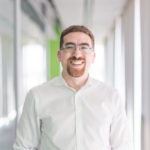 Dr. Tarek Rakha is an architect, building scientist and educator. He directs the Performative Praxis Lab (PPL), a Syracuse Architecture research lab housed at the SyracuseCoE. PPL aims to influence sustainable practices in architecture and urban design by leading innovative research in three fields: sustainable mobility and outdoor comfort, daylighting and energy in buildings, and the use of drones in building performance inspection. Dr. Rakha is Principal Investigator on multiple externally funded projects, including FAST: Syracuse, funded by NYSERDA and NYSDOT, Daylighting for Cognition, funded by SageGlass, and Heat Mapping Drones, funded by the Upstate Revitalization Initiative. Prior to joining Syracuse University, he completed his PhD in building technology at MIT, where he was an instructor and part of the Sustainable Design Lab as a member of the developing team for umi, the urban modeling and simulation platform. His research was published in peer reviewed journals, such as Solar Energy and the Journal of the Illuminating Engineering Society of North America LEUKOS, as well as in numerous conference proceedings including Building Simulation and PLEA. He was also an invited speaker and critic by a variety of organizations and academic institutions including TEDxCairo, Harvard University and the American University of Beirut.
Dr. Tarek Rakha is an architect, building scientist and educator. He directs the Performative Praxis Lab (PPL), a Syracuse Architecture research lab housed at the SyracuseCoE. PPL aims to influence sustainable practices in architecture and urban design by leading innovative research in three fields: sustainable mobility and outdoor comfort, daylighting and energy in buildings, and the use of drones in building performance inspection. Dr. Rakha is Principal Investigator on multiple externally funded projects, including FAST: Syracuse, funded by NYSERDA and NYSDOT, Daylighting for Cognition, funded by SageGlass, and Heat Mapping Drones, funded by the Upstate Revitalization Initiative. Prior to joining Syracuse University, he completed his PhD in building technology at MIT, where he was an instructor and part of the Sustainable Design Lab as a member of the developing team for umi, the urban modeling and simulation platform. His research was published in peer reviewed journals, such as Solar Energy and the Journal of the Illuminating Engineering Society of North America LEUKOS, as well as in numerous conference proceedings including Building Simulation and PLEA. He was also an invited speaker and critic by a variety of organizations and academic institutions including TEDxCairo, Harvard University and the American University of Beirut.
[/vc_column_text][/vc_column][/vc_row][vc_row][vc_column width=”1/2″][vc_single_image image=”11127″ img_size=”550×400″][/vc_column][vc_column width=”1/2″][vc_column_text]The students who worked on the project are:
Current Research Interns:
Christian Martinez, MArch (Alumni)
Michaela Wozniak, BArch and Geography Student
Previous Interns (2016-2017):
Maria Coconato, BArch Student, Elise Chelak, BArch Student
Deena Darby, BArch Student, Anuradha Desai, BArch Student
Rutuja Ganoo, BArch Student, Alice Gorodetsky, BArch Student
Ruting Li, MArch Student, Stephanie Portmann, BArch Student
Pouya Zhand, MArch (Alumni)
[/vc_column_text][/vc_column][/vc_row][vc_row][vc_column width=”1/2″][vc_gallery interval=”3″ images=”11121,11122,11123,11124,11126,11125″ img_size=”550×400″][/vc_column][vc_column width=”1/2″][vc_gallery interval=”3″ images=”11120,11119,11118,11117,11116,11115″ img_size=”550×400″][/vc_column][/vc_row][vc_row][vc_column][vc_video link=”https://youtu.be/34cm3XjeZRQ” el_width=”70″ align=”center”][/vc_column][/vc_row][vc_row][vc_column][vc_column_text]
Syracuse Center of Excellence Finds Untapped Potential for Sustainable Transit in Syracuse. Find more information in this interview.
[/vc_column_text][/vc_column][/vc_row][vc_row][vc_column][vc_video link=”https://youtu.be/zLfL_BowF3c” el_width=”70″ align=”center”][/vc_column][/vc_row][vc_row][vc_column][vc_column_text]
To find more about interview, please visit http://waer.org/post/syracuse-center-excellence-finds-untapped-potential-sustainable-transit-syracuse.
[/vc_column_text][/vc_column][/vc_row]
Research & Technology Forum Series
Hybrid-Reality for Environmental Design
In an era where smart cities, intelligent buildings, and responsive environments will be expected to equally adapt to the built environment and to the building occupant, the development of new design tools and energy feedback systems are critical for predicting the aesthetic and performance impacts of our future buildings and cities. How will architects, engineers, and city planners visualize and integrate the quantitative and qualitative effects of dynamic energy flows in accordance with adaptable systems and diverse human preferences? Visualizing energy-based data according to multiple perspectives and performance criteria is essential to understanding its spatiotemporal character, impacts on comfort, and relevance in the design decision-making process.
Assistant Professors Bess Krietemeyer and Amber Bartosh (Syracuse School of Architecture), and interactive artist and software developer Lorne Covington (NOIRFLUX) discussed “Hybrid-Reality for Environmental Design” through the lens of ongoing design research at the SyracuseCoE Interactive Design and Visualization Lab (IDVL) and at the Milton J. Rubenstein Museum of Science and Technology (MoST). They presented collaborative work that explores innovative simulation workflows that merge contemporary techniques for energy modeling with augmented and virtual reality visualization methods in order to facilitate the integration of energy and user feedback in the architectural design process. Following the presentation there was a demonstration of the hybrid reality design research in the Interactive Design and Visualization Lab on the 5th floor of the SyracuseCoE.
Presenters:
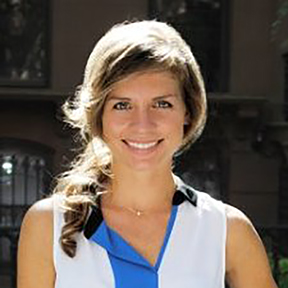 Dr. Bess Krietemeyer
Dr. Bess Krietemeyer
Dr. Bess Krietmeyeris an architectural designer and researcher whose expertise lies at the intersection of advanced building technologies, interactive systems, and building performance simulation. She leads the Interactive Design and Visualization Lab at the Syracuse Center of Excellence, where her research focuses on hybrid-reality simulations for interactive design and energy analysis. She teaches studios and technical courses emphasizing environmental performance within architectural design. Prior to joining Syracuse University, Dr. Krietemeyer conducted interdisciplinary research at Rensselaer Polytechnic Institute’s Center for Architecture Science and Ecology (CASE), where she received her Ph.D. in Architectural Sciences. She has practiced with Lubrano Ciavarra Architects and with CASE and Skidmore, Owings, & Merrill (SOM) on international projects that integrate next-generation building technologies. Her research has been published and presented in several peer-reviewed forums, including installations in New York City and in Troy, as well as SmartGeometry, the International Society for Optics and Photonics, ACADIA, Human Computer Interaction, and most recently featured in the journal Architectural Design. Her book chapter contributions include “Architecture in Formation,” “Inside Smartgeometry: Expanding the Architectural Possibilities of Computational Design,” and “Architecture and Interaction.”
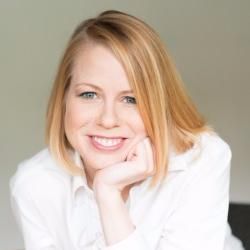 Amber Bartosh
Amber Bartosh
Amber Bartosh is an architect and interior designer who has designed and managed award-winning projects for competition, bid & design build processes in the United States, China, Kuwait, and the United Arab Emirates. Her interest in sustainability as a standard for all design led to her 2008 accreditation by LEED. She has completed both gold and silver level LEED projects and served as project manager for Emergent Tom Wiscombe LLC, an internationally recognized architectural practice focused on the integration of biology, computation, and contemporary design sensibilities. Following her cum laude double major in Art and Architecture at Rice University she went on to graduate work in the M.Arch2 program at the Southern California Institute of Architecture (SCI-Arc). She completed her work at SCI-Arc with a Master’s in Architecture and the Alpha Rho Chi medal. Amber Bartosh is currently an Assistant Professor for the School of Architecture at Syracuse University where she teaches both foundation studios and representation courses focused on expanding the capacity of digital media in architecture.
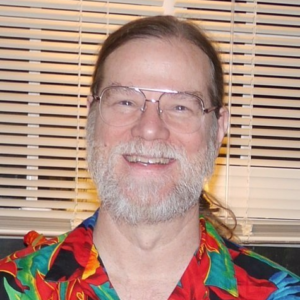 Lorne Covington
Lorne Covington
Lorne Covington, Creative Director and Principal at NOIRFLUX, creates participatory environments that provide immersive exploration, education, advocacy, and improvisational expression. Lorne is fluent with visual and performing art, electronic hardware, embedded systems and all layers of software development, creates immersive responsive environments using cutting-edge sensing and software technologies. Covington’s work focuses on the intangible space between action and response, the moment-to-moment experience of involvement with a complex system that turns the act of viewing into one of exploration, creation and play. Recent projects include “Affectations” at the Kennedy Center, “Dancing Light Theater” at the MOST in Syracuse and the JournoWall Participatory Media Environment at the Newhouse School, where students and faculty can interact with large-scale visual information and sound.
[vc_row][vc_column][vc_video link=”https://www.youtube.com/watch?v=EKFoUlKcyuo” el_width=”60″ align=”center”][/vc_column][/vc_row]

